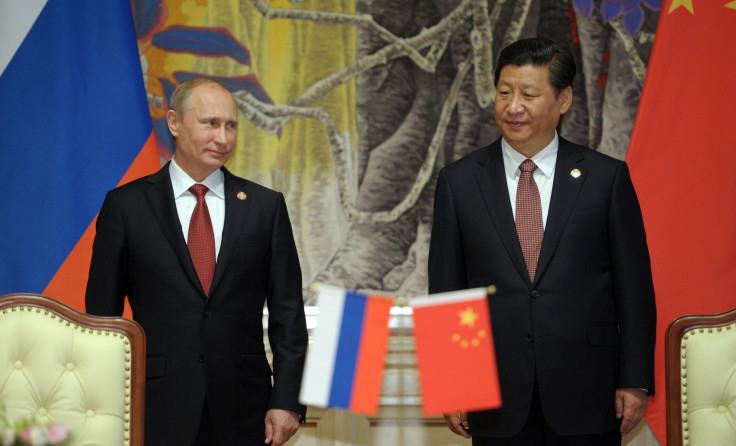Russia's Central Bank Lowers Shares Of US Dollar, Turns Toward Chinese Yuan

Russia's central bank has decided to lower its amount of U.S. dollars in reserves, due to economic, financial and geopolitical risks, according to a Reuters report.
Ksenia Yudaeva, the first deputy chairman of the Bank of Russia, further explained to parliament members Monday why she lowered the shares of the dollar, while adding an increased share of the euro, Chinese yuan and gold to its reserves.
"We have tried to bring this (reserves) structure into accordance with the risks we believe we may face," Yudayeva said.
The Central Bank of Russia has cut U.S. dollars to 22.6 percent of its foreign currency reserves as of September 2018, down from 46.2 percent in 2017.
Tensions have been high between the U.S. and Russia since the 2014 Russian annexation of the Crimean peninsula from Ukraine, along with allegations that Russia interfered in the 2016 U.S. Presidential elections. The 2014 annexation of Crimea has led the international community and the U.S. to not only condemn the move by Russia but also to place sanctions on its economy.
Due to a strain between the Russian Federation and the U.S., the Kremlin is increasingly looking towards China, and its currency, the Yuan. As of September 2018, the Central Bank of Russia held 14.4 percent of its foreign exchange reserves in Chinese Yuan, a huge jump from a year earlier when it held only one percent of its reserves in Chinese currency.
Russia is also increasingly using the Yuan to pay for Chinese imports. As of 2017, the Russians paid for 15 percent of Chinese imports with the Yuan, a jump up from nine percent in 2014, the Asian Nikkei Review reported. Russian banks, such as Sberbank, are increasingly using a Chinese cross-border financial trade service called the Cross-border Interbank Payment System (CIPS), which uses the Yuan to conduct international transactions and transfers. 23 Russian banks in total are now using the CIPS service.
Countries who are antagonistic towards U.S. Foreign Policy, like Russia, are increasingly moving away from the dollar towards the Yuan. Turkey, another country which had been targeted by U.S. sanctions in the past, is also using CIPS, with 11 Turkish banks participating in the service. Iran, like Russia, could also be turning against the dollar as it had been slapped by U.S. sanctions under the Trump administration and CIPS could pose as an alternative for its international transactions.
© Copyright IBTimes 2024. All rights reserved.





















